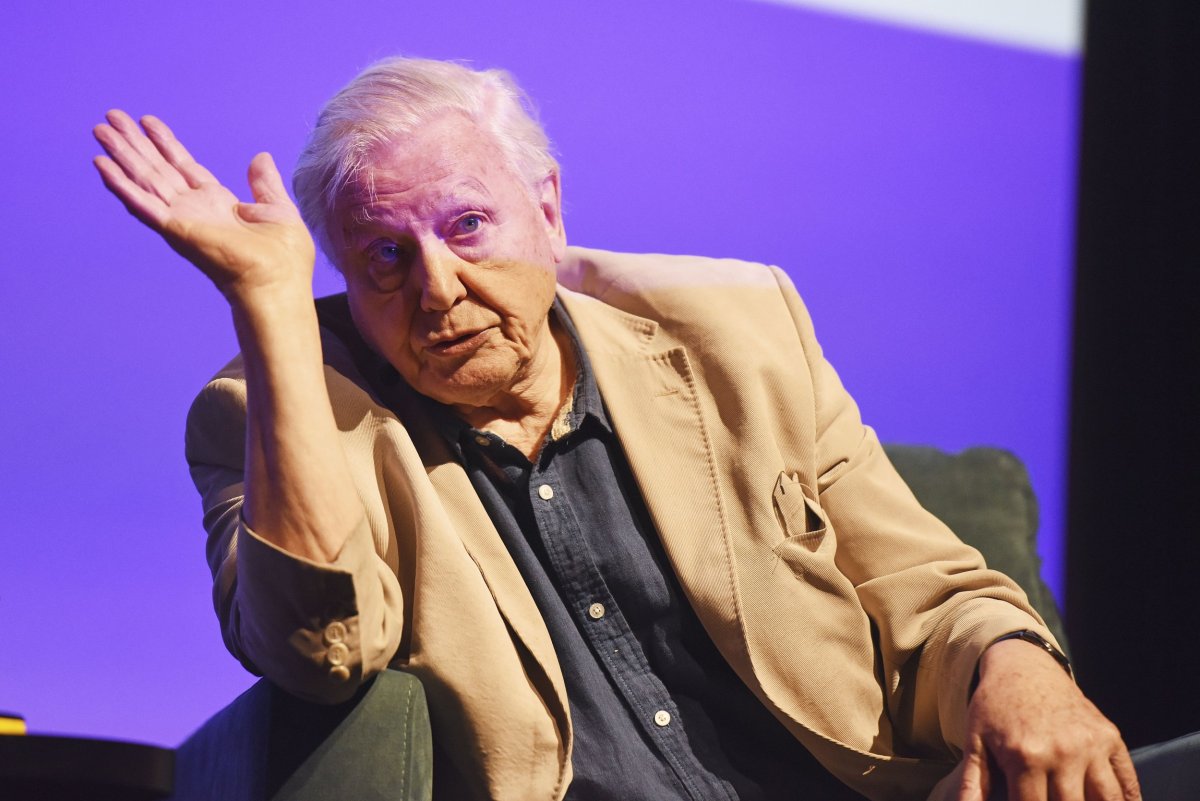Renowned British naturalist and broadcaster David Attenborough has warned that we are facing "global catastrophe" if we do not act rapidly to deal with climate change.
Attenborough, 92, made the comments in a new one-off program for the BBC titled Climate Change: The Facts, which airs in the U.K tonight.
"In the 20 years since I first started talking about the impact of climate change on our world, conditions have changed far faster than I ever imagined," Attenborough says in the film, Radio Times reported.
"It may sound frightening, but the scientific evidence is that if we have not taken dramatic action within the next decade we could face irreversible damage to the natural world and the collapse of our societies," he said. "We're running out of time but there's still hope. I believe that if we better understand the threat we face, the more likely it is that we can avoid such a catastrophic future."
Using interviews with several leading researchers in the field, the program investigates the science of climate change; the impact it could have on humans and the natural world if major reductions in carbon emissions are not made; and potential solutions to this "global threat."
"One degree Celsius global warming may not sound like much, but it's having a dramatic effect on our weather," Peter Stott from the U.K. Met Office says in the film. "We're seeing extreme heat in southern Africa, Japan, North America, in the U.K. as well. So it doesn't mean to say that every single weather event is due to climate change. But what [it] does mean, is that with the baseline climate having changed, then the frequency of the extreme temperatures is increasing."
Richard Black, from the Energy and Climate Change Intelligence Unit, adds: "Often the question is did climate change cause a certain event, and you can never really answer that question. But what scientists do is to look at whether climate change made a certain event more or less likely or more or less intense."
As well as climate experts, the program also briefly features Swedish teen activist Greta Thunberg, who sparked a global movement last year when she began striking on school days.
Thunberg began her "School Strike for the Climate" by protesting alone—initially—outside the Swedish parliament in Stockholm every Friday. Her activism soon attracted the attention of the media, inspiring similar protests by young people around the world.
"My future and everyone else's future is at risk and nothing is being done, no one is doing anything, so then I have to do something," Thunberg says in the film, Radio Times reported. "So I sat myself down on the ground outside the Swedish parliament, and I decided that I wasn't going to go to school.
"The first day I sat all alone. Then the second day people started joining me. I wouldn't have imagined in my wildest dreams that this would happen. It happened so fast."

Uncommon Knowledge
Newsweek is committed to challenging conventional wisdom and finding connections in the search for common ground.
Newsweek is committed to challenging conventional wisdom and finding connections in the search for common ground.
About the writer
Aristos is a Newsweek science reporter with the London, U.K., bureau. He reports on science and health topics, including; animal, ... Read more
To read how Newsweek uses AI as a newsroom tool, Click here.








